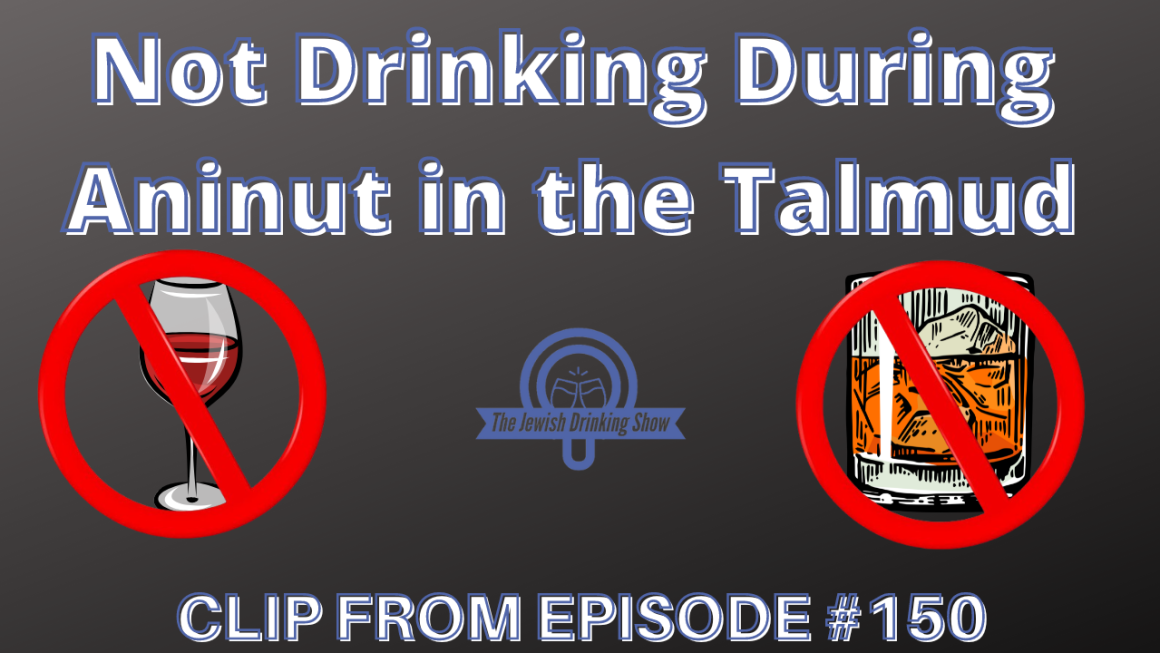As kiddush consists of saying two blessings – one over wine and one over sanctifying Shabbat – what happens when it is said not at meal? While it may have been taken for granted during Tannaitic (early Rabbinic) times that the Shabbat Sanctification (קידוש היום (commonly referred to as simply קידוש, kiddush)) is to take place at a meal,[1] an interesting development in the early third century arose.[2] The new practice that arose for certain people to make kiddush on Friday nights in some synagogues (Pesahim 100b),[3] seemingly only in Babylonia,[4] caused a three-way split of opinions amongst the leading rabbinic authorities at the time.
The three sages involved in this early third century disagreement were Rav, Shmuel, and Rabbi Yohanan. It seems as if this question arose out of this edge case, since where else would one make kiddush, aside from where one is dining on a Friday night?[5] Each of these three rabbis answered two questions relating to this situation: has one fulfilled one’s obligation for kiddush and has one fulfilled one’s obligation for wine? We will deal with these two questions separately.
Kiddush-Fulfillment?
The first question: has one who has done kiddush in synagogue on a Friday night fulfilled one’s obligation for kiddush? Rav, the founder of the Sura rabbinical academy in 219, who led it until his passing in 247,[6] considered kiddush made at synagogue to have accomplished one’s requirement to hear kiddush for Shabbat (Pesahim 100b). As to why he considers one’s kiddush requirement to have been fulfilled at synagogue, it may tie into his broader conceptualization of kiddush that once one has tasted something, one does not say kiddush, as quoted by Rav Huna (Pesahim 106b). It may also have to do with his view that since Shabbat establishes for kiddush (Pesahim 105a), that it is forbidden to taste anything on Shabbat until one makes kiddush.[7]
His contemporary, Shmuel, who was the leading rabbi in Nehardea until his passing in 254,[8] said that one’s obligation for kiddush is not fulfilled through this kiddush at shul on a Friday night (Pesahim 100b-101a). Furthermore, unlike Rav, he does not opine that if one has tasted anything that they would not be able to say kiddush, as quoted by Rav Nahman, as quoted by Rabbah (Pesahim 106b)[9].
As to why Shmuel does not view kiddush at synagogue as accomplishing one’s kiddush obligation, he states that kiddush should only occur at the place of one’s meal (Pesahim 101a). The reasoning behind this statement of his, whether originally part of this statement[10] or simply articulated by Medieval sages,[11] is a connection to the Biblical phrase “and you shall call Shabbat a delight” (Is. 58:13),[12] that where one declares the sanctity of Shabbat should also be the location of one’s delight.[13] This suggests that Shmuel is articulating the need for the sanctification of Shabbat to be declared at a meal, where there is to be delighting in the Shabbat meal and wine-drinking.[14] In other words, has one really accomplished the experiential aspect of kiddush without eating food and drinking wine?
As to how closely Shmuel intends for kiddush to take place at a meal, he was reported by Rav Anan, son of Tahlifa, as having made a separate kiddush even when moving from an upper level to the ground level (Pesahim 101a). Shmuel believed very strongly in this direct connection of kiddush kicking-off the meal.
The rabbinic authority who viewed this synagogue kiddush as maximally fulfilling was Rabbi Yohanan, who taught in Sepphoris and Tiberias before his death in 279.[15] Rabbi Yohanan voiced his opinion that kiddush at synagogue on Friday nights fulfills one’s kiddush requirement (Pesahim 101a), which is likely due to kiddush having been articulated. After all, once one makes kiddush, kiddush has simply been accomplished.
Wine-Fulfillment?
The second question: has one who has done kiddush in synagogue on a Friday night fulfilled one’s obligation for wine? What has been fulfilled: is it covering one’s need for a blessing over the wine they will drink at their Shabbat dinner, or is it the fulfillment of drinking wine on Shabbat evening? We will consider both possibilities.
Rav thought that one needs a separate blessing upon wine when they arrive home for their Shabbat dinner (Pesahim 100b). For Rav, it seems that one would need to make a separate blessing over wine when one arrives home for their Shabbat meal, since one has changed physical locations,[16] while it may also be on account of him requiring wine to be actually drunk on Shabbat evening at Shabbat dinner, thus, one’s drinking of wine at synagogue does not accomplish the full Shabbat experience – one should also drink wine at Shabbat dinner.
Shmuel agreed with Rav in stating that such people still need to bless again upon wine when they dine at home (Pesahim 100b-101a), although it’s unclear if he fully agrees with Rav’s reasoning.
Rabbi Yohanan is the only one amongst these three that opines that one’s wine-consumption at kiddush at synagogue on Friday night covers one’s wine obligation (Pesahim 101a). If it is due to covering one’s need for a blessing over wine they will drink at their Shabbat dinner, as opposed to his Babylonian contemporaries, he believes that changing one’s location does not disrupt one’s wine-blessing, in line with a statement about which he is quoted by Rabbi Pedat and, in turn, Rabbi Hanin, son of Abayye, that changing one’s physical location does not necessitate a separate blessing over wine (Pesahim 101a-b), which may be achieved by keeping one’s wine-drinking it in mind and not considering their wine-blessing as only covering the wine drunk at synagogue.[17]
Alternatively, perhaps the reason Rabbi Yohanan opines that one has fulfilled one’s requirement of drinking wine on Shabbat evening at this kiddush at shul is since he doesn’t believe that kiddush needs to involve wine-drinking, based on a statement of his, quoted by Rabbi Hiya, son of Abba, that he had provided a historical recounting that the members of the Great Assembly had initially instituted kiddush to be said while in prayer then moved it to over a couple of wine and then move it back to prayer (Berakhot 33a), seemingly inferring that wine is not intrinsically tied into kiddush.
Geographical Factors?
Could there be a geographical component? Rabbi Yohanan lived in Israel and, as far as we can tell, never experienced this phenomenon, which is why he would have been fine with kiddush taking place in the synagogue on Friday evening, since kiddush is kiddush. Rav, who “was born in Babylonia and came to the Land of Israel”,[18] might have considered that it accomplishes the kiddush requirement, but still opined that wine needed to be drunk at Shabbat dinner. Shmuel, “who was born into an illustrious Babylonian family that could trace its lineage back for generations”,[19] may have been far more embedded in the Babylonian milieu and better understood the need for kiddush where the meal is taking place.
Aftermath
In the immediately subsequent generations, it seems that Shmuel’s reasoning won. In the following generation, Rav Huna recited kiddush, his lamp was extinguished, brought his belongings to the wedding home of his son, Rabba, where there was a lamp, and he recited kiddush there and tasted immediately (Pesahim 101a). Abayye reported that Rabbah told him “Taste some [where we are eating], lest by the time you get to your lodging, your lamp extinguishes, and you will not be able to recite kiddush in the place where you will eat. And with the kiddush here, you do not fulfill kiddush, as there is no kiddush except in the place of one’s meal” (Pesahim 101a).
In later generations, the stammaim sought to consider why, according to Shmuel, these people would make kiddush at shul – what does it accomplish for them? For Shmuel, according to the stammaim, those making kiddush at shul on a Friday night was done for those eating, drinking, and sleeping at the synagogue (Pesahim 101a). However, it should be pointed out that we don’t know that anyone actually did.
It’s not even clear that it was taking place in the times of the stammaim – they might have been imagining that such practices took place in the third century. For the stammaim, “This framework, post-dating the statements of identified figures, introduces questions, often provides solutions, and, in general, controls the interpretation of the earlier sources. It was composed by the late-fifth /early-sixth centuries, no later than c. 542 when the Black Plague appeared in Byzantium and proceeded to ravage the region for two centuries.”[20]
For Rav, according to the stammaim, why would one bother to enjoy a Friday night kiddush at shul and then come home for another kiddush? It would be to fulfill the requirement of kiddush for his children and other household members (Pesahim 101a), although Rav may have viewed the experiential need to have kiddush at home for it to be part of one’s Shabbat dinner.
Conclusion
The innovation that occurred amongst some Jews in early third century Sasanian Persia to make kiddush at synagogue on Friday evenings before heading home to have Shabbat dinner caused a three-way debate amongst the leading rabbis of the time: Did those Jews who took part in these “Kiddush Clubs” accomplish their need of either saying kiddush on Friday night and/or drinking wine at their Shabbat dinner? While Shmuel’s reasoning of kiddush is to take place where one is dining seemed to have been adopted in subsequent generations, it is also fascinating to read that none of these rabbis spoke out against these Kiddush Clubs. Inasmuch as Rav and Shmuel opined that there was something still lacking in fulfilling one’s requirement for Friday night kiddush, they were still okay with these people taking part in such activities in their synagogues on Friday nights before their own Shabbat dinners. It seems that all three of these rabbis privileged the experiential aspect of kiddush taking place with wine-drinking at the Shabbat dinner, yet were okay with these Jews making kiddush in synagogue. Nevertheless, the preference for kiddush to take place where one is dining ultimately won out following this early third century dispute.
Notes
[1] Cf. Beraitot regarding a group engaged in a Friday afternoon symposium (Pesahim 102a-b) and the Friday afternoon symposium in Akko incident with Rabban Shimon, son of Gamliel, and Rabbi Yossi (Pesahim 100a).
[2] It may have even been already developing in the late second century, since it came to the fore by the early third century.
[3] It is unclear from the Talmud as to how widespread this practice was at the time, as the Talmud describes them as “those people who make kiddush at synagogues” and not language such as “Why do we make kiddush at synagogues?” Moreover, the language employed isn’t “those synagogues where they make kiddush” making it seem as if it wasn’t necessarily everybody even in a single synagogue taking part in this practice. Perhaps it could be an early “Kiddush Club” of sorts taking place at these synagogues on Friday evenings.
It is furthermore unclear as to why people at certain synagogues engaged in this practice and which did not, as it does not ostensibly seem to break down according to clear geographical lines (there is no discussion as to the synagogues in “the west” versus those in “the east”).
[4] Although there was a tannaitic teaching [from Israel] against eating, drinking, and other activities in synagogues (Megillah 28a-b), Rav Asi, an early-third century rabbi, stated that Babylonian synagogues are conditionally made (Megillah 28b), allowing such activities to take place.
[5] This was before the development of The Great Kiddush, as it seems to have developed in subsequent rabbinic generations, as seen in the incident of Rav Ashi visiting Mahoza (Pesahim 106a) (it is unclear what to make of Rav Yehudah’s statement concerning which blessing to say for The Great Kiddush (Pesahim 106a), as to whether he was directly responding to that question or if his statement was literarily placed in relation to this topic).
[6] H.L. Strack and Günter Stemberger, Introduction to the Talmud and Midrash, trans. & ed. Markus Bockmuehl, 2nd. Ed. (Minneapolis: Fortress Press, 1996), 85.
[7] Rashi, Pesahim 105a, SV כך קובעת לקידוש.
[8] Strack and Stemberger, Introduction to the Talmud and Midrash, 85.
[9] While there is also a competing tradition that Shmuel says, as quoted by Rav Yehudah, who is quoted by Rav Yosef, that one who tastes does not make kiddush (Pesahim 106b), that does not seem to fit with his opinion about those people who make kiddush at synagogue needing to kiddush again. (For Rav Yehudah as being the intermedial tradent between Rav Yosef and Shmuel even though not evidenced in the printed versions, see the manuscripts (MSS Munich 6, Munich 95, Columbia 294-295, Unlau 271, JTS 1608, Oxford 366, Sassoon-Lunzer, Vatican 109, Vatican 125, Vatican 134, and more).)
[10] As evidenced in MS Oxford 366 and possibly MS Vatican 125.
[11] This phrase of “דכתיב וקראת לשבת עונג במקום שקראת שם תהא עונג” appears in one way or another in several writings of Medieval rabbinic commentators (Rif (20a), Rosh, Mordechai, Tosefot, Rashbam (and possibly more)) in a way that seems as if they had that phrase included in the texts in front of them as part of Shmuel’s statement. However, most extant manuscripts do not witness this phrase being included (Munich 95, Columbia 294-295, Unlau 271, JTS 1608, Sassoon-Lunzer, Vatican 109, and Vatican 134), nor is it in the Vilna printed edition. Whether it represents a separate manuscript tradition or is simply a marginal note that made it in to the Medieval rabbinic commentators’ versions is unclear.
[12] If it is part of Shmuel’s statement, it would fit in nicely with the three other mentions of this verse in the Babylonian Talmud: a statement of Rabbi Yohanan indirectly quoting Rabbi Yossi concerning enjoying Shabbat (Shabbat 118a), a statement of Rabbah’s regarding enjoying Shabbat (Pesahim 68b), and a question posed by Rava to Rav Nahman regarding Shabbat and tithes (Bezah 34b).
[13] Tosafot & Rashbam, Pesahim 100b, SV אף ידי קידוש לא יצאו. See also Rosh, ad loc.
[14] Rashbam, Pesahim 100b, SV אף ידי קידוש לא יצאו.
[15] Strack and Stemberger, Introduction to the Talmud and Midrash, 86.
[16] Rashi, Pesahim 100b, SV ידי יין לא יצאו.
[17] Rashbam, Pesahim 101a, SV ה”ג ורבי יוחנן אמר אף ידי יין נמי יצאו.
[18] Binyamin Lau, The Sages: Character, Context & Creativity, Vol. IV: From the Mishna to the Talmud, trans. Ilana Kurshan (Jerusalem: Maggid Books, 2015), 155.
[19] Lau, The Sages, 137.
[20] Yaakov Elman, “The Babylonian Talmud in its Historical Context,” in Printing the Talmud: From Bomberg to Schottenstein, ed. Sharon Lieberman Mintz & Gabriel M. Goldstein (New York: Yeshiva University Museum, 2005), 19.



